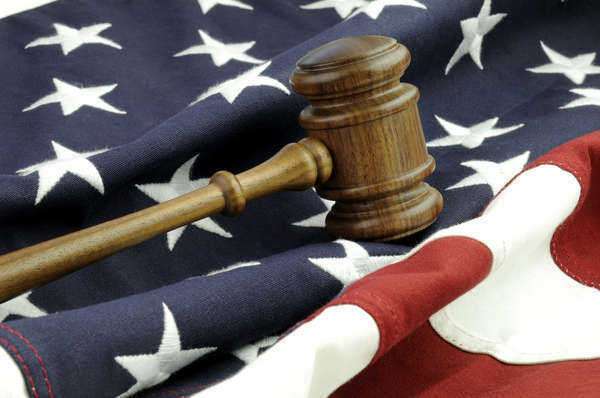What are the Legal Issues of Perjury
Although lying or misrepresenting oneself seems like a rudimentary violation, the U.S. legal system finds such acts far from juvenile. A miscarriage of justice occurs when a judge or jury wrongly convicts an innocent defendant. Faulty convictions, or a miscarriage of justice, are a direct violation of the Bill of Rights, and thus considered unconstitutional.

Lying under oath, or to perjure oneself, is considered a miscarriage of justice and is taken very seriously in the United States court system. When an individual is on trial for a crime (civil or criminal) there is a direct group of rights given to him to ensure that the trial is conducted in a fair and speedy manner. These rights are outlined in the Sixth Amendment and are considered the legal guidelines under which a trial is to be conducted.
Violations against the Sixth Amendment in a courtroom or legal setting are considered illegal and will be enforced accordingly. To perjure, or lie under oath, against a defendant is a common reason for a miscarriage of justice. When under oath, a witness, defendant, or examiner must comply with the laws of the United States and recite the pertinent details or opinions without bias or misinformation. Any violation of this code presents an issue, unless the information was given under false pretenses or the person was literally telling the truth.
The semantics in the courtroom are imperative to determine a perjury and a subsequent miscarriage of justice. Although there are guidelines for which a miscarriage of justice can fall under, gray areas exist in the form of interpretation or simple misunderstandings. The basis for a miscarriage of justice, or a perjury, revolves around facts or speech that directly affect the outcome of the case.
Lying about information that is not pertinent or which is not influential in the verdict is not an example of perjury. An individual who lies under oath for a direct benefit, such as a non-guilty sentence, or a lesser conviction, will be guilty of perjury. A perjury, although difficult to prove, comes with a hefty sentence. A person guilty of perjury will face a maximum of 15 years in prison and a minimum penalty of a fine. The level of punishment is based on the severity and intention of the lie.
Perjury can also work against the defendant if a witness misinforms the jury with the intent to wrongfully convict the accused perpetrator. This form represents a miscarriage of justice and is a direct violation against an individual's Constitutional rights.
A miscarriage of justice can exist in many forms, but some of the more common cases include: tampering of evidence by law enforcement agents, gross overestimation or underestimation of opinion from an expert witness, and prejudice against the defendant. Cases where someone is wrongly accused represent a miscarriage of justice.
The appeals courts of the United States exist for this very reason. If people are found guilty of a crime that they didn't commit, they can have a second chance to state their case or review their original trial to investigate what form of conduct was illegal.
The importance of the Constitution cannot be understated when referring to a miscarriage of justice. The United States was built on issuing freedoms to its citizens, and no matter the conviction or evidence against individuals, they must be given a trial to prove innocence